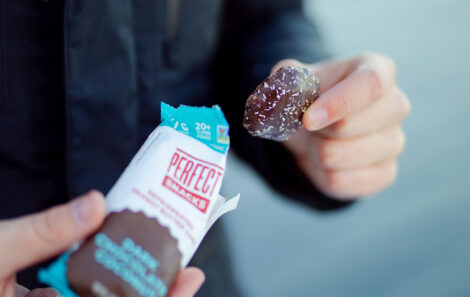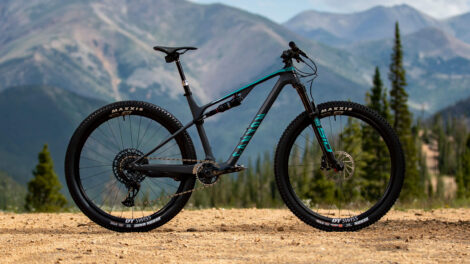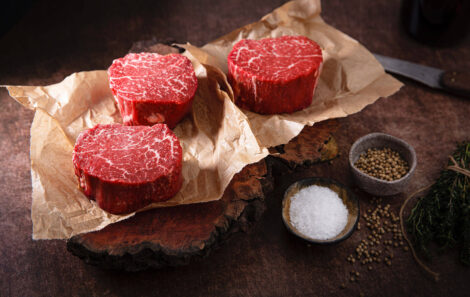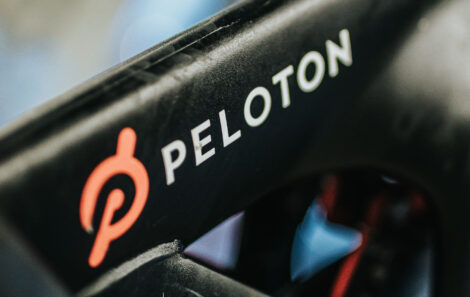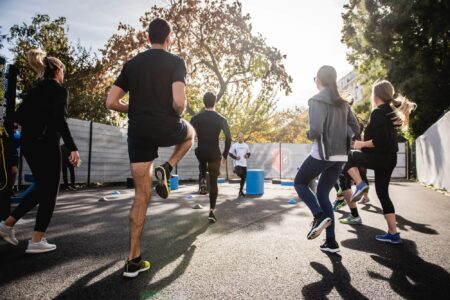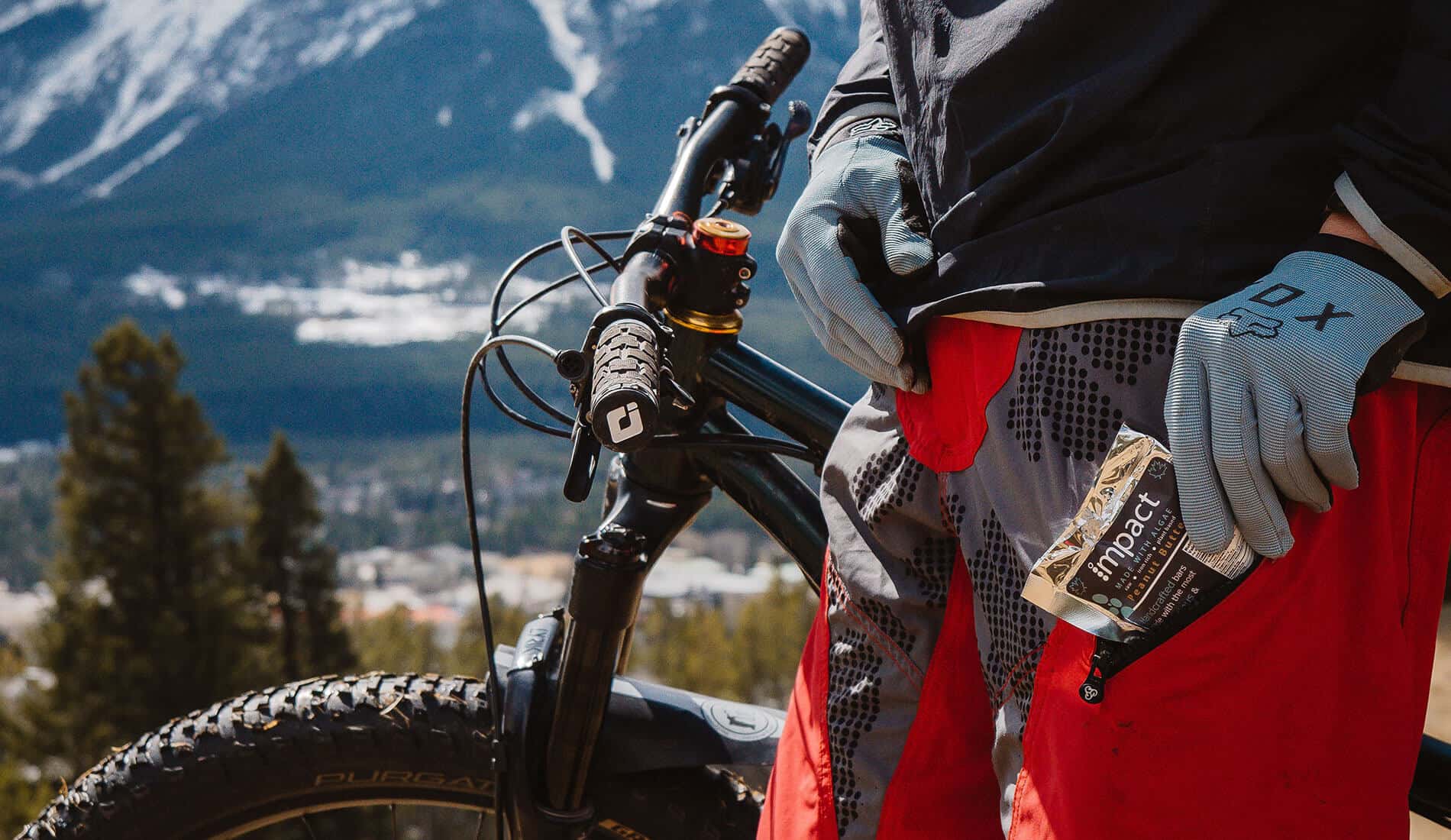
Photo by Algi
Do you struggle with what to eat each day? Are you unsure what to pack for lunch or make for dinner? Along with snacks, eating three balanced meals per day can keep you feeling energized to get through the workday and fuel any ride plans you have. Here’s my nutrition 101 for mountain bikers.
Ideally, each meal should contain three macronutrients: carbohydrates, fat, and protein. Approximately 45-65% of our calories should come from carbs, 10-35% from protein, and 20-35% from fat. Carbohydrates are the body’s primary source of energy. You do not need to avoid carbs or go low carb. One of the main functions of protein is to build and repair muscles. Protein breaks down slower than carbs, making it a longer-lasting energy source.
Eating a protein bar right before a workout is not ideal as it can feel like a rock in your stomach. Instead, eat a carb-rich snack like a banana before a workout. Fat is used by the body as energy, storage for the fat-soluble vitamins (A, D, E, and K), and for the production of hormones. It is the slowest source of energy but the most energy-efficient form of food since it contains the most calories per gram.
Breakfast
First nutrition 101 for mountain bikers tip, don’t skip breakfast. It’s preferable to eat a small meal or even snack, such as an apple with peanut butter, rather than nothing. Those that skip breakfast tend to overeat later in the day. An ideal balanced breakfast contains carbohydrates, fat, and protein. Generally, the carbohydrate sources at breakfast are whole grain or fruit. Whole grains are usually less processed and contain more fiber.
Examples of whole grains are whole wheat bread, oats, and quinoa. Carb sources at breakfast can also be fresh fruit like apples, bananas, or berries. Good protein sources at breakfast are eggs (eat the whole egg), low or full-fat Greek yogurt (contains more protein than regular yogurt), milk, cheese, and peanut butter. Unfortunately, all of those protein foods also contain some fat which is important to have. Some sample breakfast ideas are:
Meal
- 2 eggs (protein)
- 2 slices bread or a bagel (carb)
- 1/3 avocado (fat)
- Fruit (carb)
- Oatmeal (carb) topped with fruit (carb), nuts (fat and protein), and Greek yogurt (fat and protein)
Smoothie
- 1 cup fruit (carb)
- ½ Greek yogurt (protein and fat if not nonfat)
- 1 cup milk or water
- 1 handful Spinach or Kale (mostly fiber)
- 1-2 tbsp Peanut butter (fat and protein)
** Foods can contain more than one macronutrient but are generally classified as the one they contain most of (for example, chicken is a protein). Still, some don’t fit in one category. For example, beans provide protein and carbs. On the other hand, nuts provide protein and fat.
Lunch
Lunch is also vital and should not be skipped. However, since lunch can often be eaten at an office or school, it can be hard to come up with ideas of what to pack. A balanced lunch should also contain carbs, fat, and protein. Ideally, it should include some vegetables or fruit as well. Two of my favorite lunch options are:
Sandwhich
- 2 slices whole-wheat bread (carb)
- Meat of choice (protein)
- Cheese and/or avocado (fat)
- Spinach and/or tomato
- Pickles
- Served with carrots or other veggies (mostly fiber) and hummus (protein and fat)
Grain Bowl
- Quinoa (protein and carb)
- Spinach or Kale (mostly fiber)
- Black beans (protein and carb)
- 1/3 Avocado (fat)
- Dressing of choice (fat)
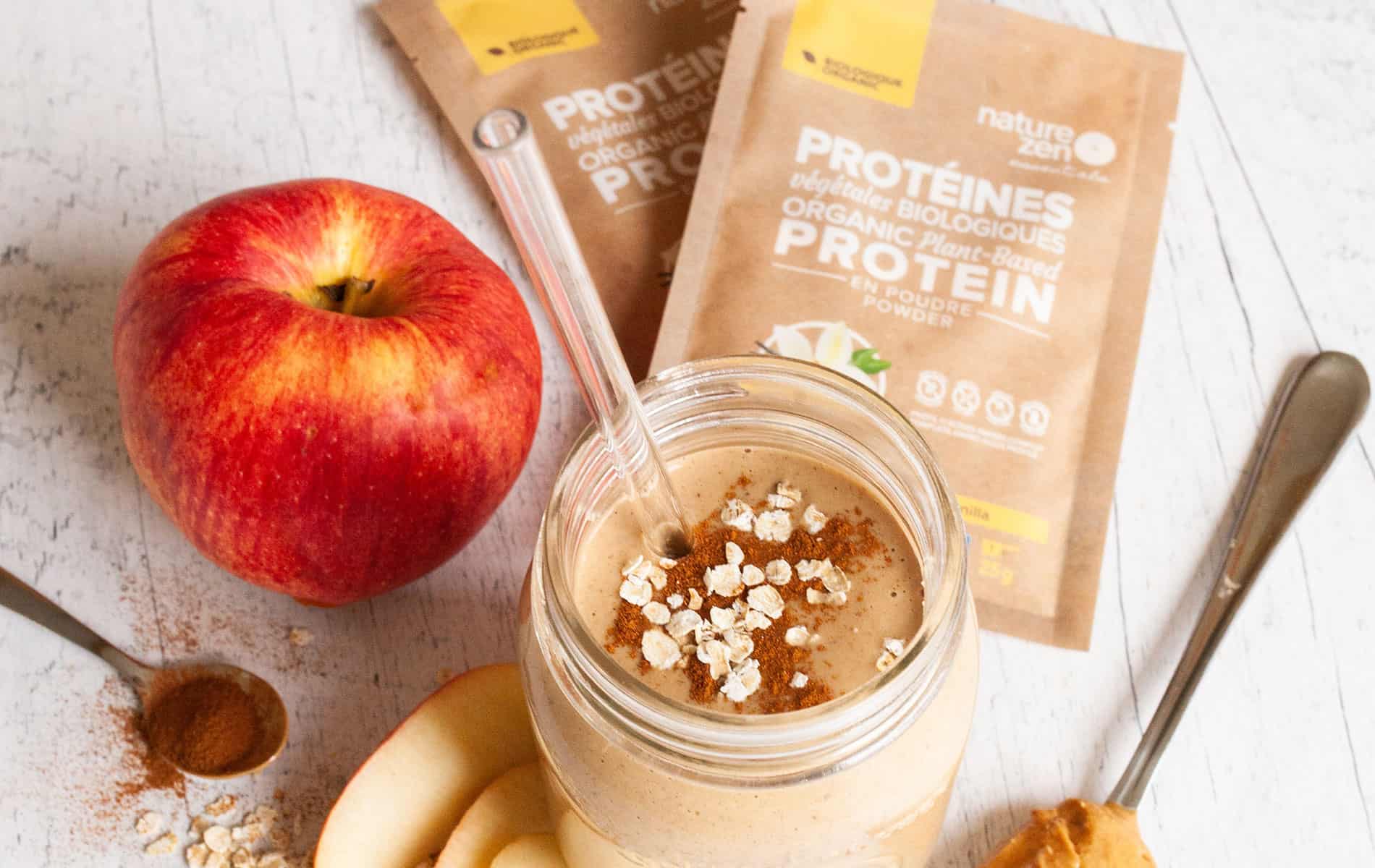
Different Types Of Protein Powders For Mountain Bikers
Read MoreDinner
After a long day and maybe a mountain bike ride, dinner should contain the three macronutrients as well. Most traditional dinners contain all three macronutrients, but some examples are:
- chili (vegetarian or with meat)
- salmon with potatoes and veggies
- cheese/veggie frittata with toast or rice
Throughout the day, try to keep the following tips in mind.
First, include whole grains as much as possible. However, if it is the day before a race, less fiber can be better for your stomach. So that is the ideal time for white bread, white potatoes, or white rice.
Second, include plenty of fruit and vegetables. Try to make 1/3 to ½ of your dinner plate vegetables. Fruit and vegetables contain many antioxidants and provide fiber. Try to choose lean proteins like grilled or baked chicken, fish, turkey, lean beef, or eggs. Also, remember to include healthy fats like olive oil, avocado, nuts, and seeds.
Lastly, don’t forget to drink water and stay hydrated.
Emily Werner
Emily is a Sports Dietitian who is passionate about helping others improve their health and athletic performance through proper nutrition. She races cyclocross professionally. She lives in Roanoke, VA with her husband Kerry and their beagle Sherman.
Get the email for busy mountain bikers.
Discover the best products + gear, and learn about deals from brands you love.
